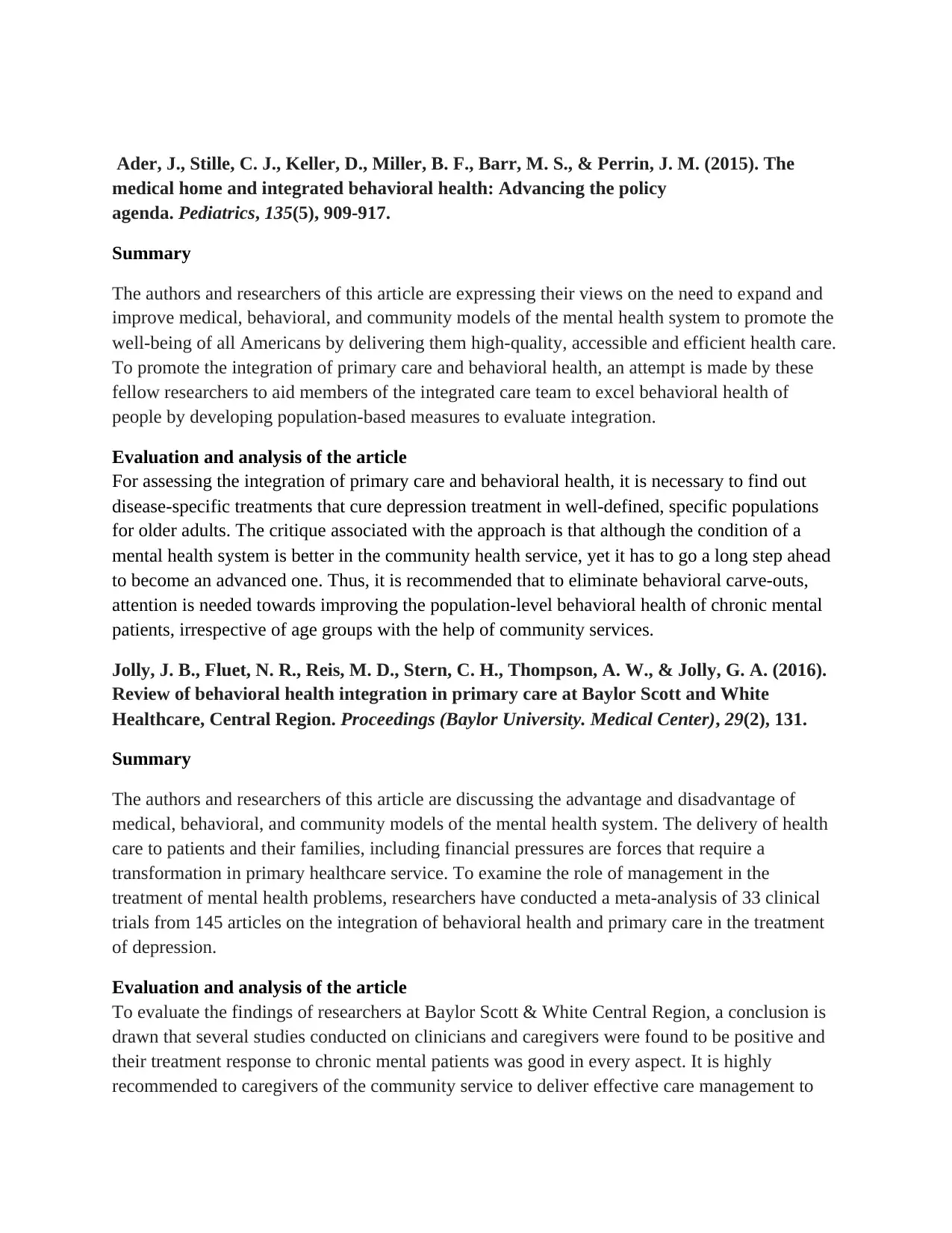Healthcare: Annotated Bibliography on Mental Health Systems
VerifiedAdded on 2019/09/20
|4
|572
|288
Annotated Bibliography
AI Summary
This annotated bibliography examines two articles related to mental health systems. The first article discusses the need to integrate primary care and behavioral health to improve healthcare delivery and emphasizes the importance of population-based measures for evaluating this integration. The second article reviews the integration of behavioral health in primary care, highlighting the benefits of collaborative efforts among clinicians, while also acknowledging the associated costs. Both articles provide valuable insights into the challenges and opportunities within mental health systems, advocating for improved care management and further research to enhance clinical and cost-effectiveness. The bibliography focuses on the integration of primary care, behavioral health, and community services for the effective treatment of mental health problems.
1 out of 4










![[object Object]](/_next/static/media/star-bottom.7253800d.svg)